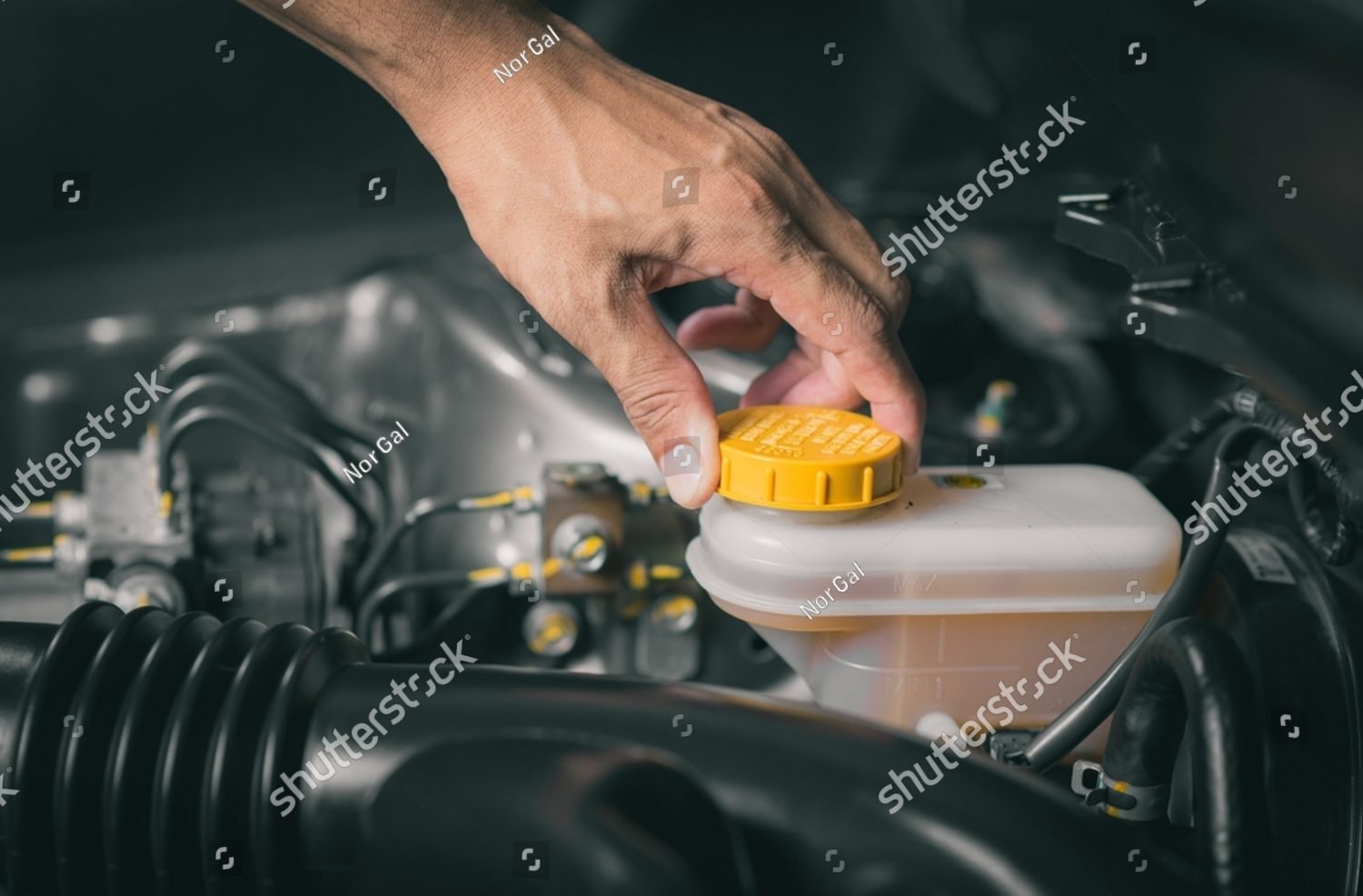When it comes to vehicle maintenance, most car owners are diligent about regular oil changes and keeping their gas tanks filled. However, there are other essential fluids in your vehicle that also require attention and care to ensure optimal performance and longevity. Checking and maintaining these crucial fluids is an integral part of responsible car ownership and can save you from costly repairs and unexpected breakdowns.
- Coolant/Antifreeze: Coolant, also known as antifreeze, plays a critical role in regulating the engine’s temperature and preventing it from overheating. It circulates through the engine and absorbs excess heat, which is then dissipated through the radiator. It’s vital to check the coolant level regularly, especially before embarking on long trips or during extreme weather conditions. Low coolant levels can lead to engine overheating, causing severe damage and potentially leaving you stranded on the side of the road.
- Brake Fluid: Brake fluid is an essential component of your vehicle’s braking system. It transfers the force applied to the brake pedal to the brake calipers or wheel cylinders, allowing the brakes to engage and slow down or stop the vehicle. Regularly checking the brake fluid level and ensuring it’s within the manufacturer’s recommended range is crucial for maintaining brake performance. If the brake fluid level is consistently low, it could indicate a leak in the braking system, which requires immediate attention from a qualified mechanic.
- Power Steering Fluid: Power steering fluid enables smooth and effortless steering, making it easier to control your vehicle. It assists in reducing the effort required to turn the steering wheel, especially at low speeds or when parking. Regularly inspecting the power steering fluid level and topping it up when necessary can prevent steering issues and maintain the overall stability and drivability of your car.
- Transmission Fluid: The transmission fluid is responsible for lubricating and cooling the components of your vehicle’s transmission system. It allows for smooth gear changes and protects against excessive wear. Like engine oil, transmission fluid can degrade over time, losing its effectiveness. Regularly checking the transmission fluid level and condition is vital, as neglecting this fluid can lead to costly transmission repairs or replacements.
- Windshield Washer Fluid: Though not directly related to vehicle performance, windshield washer fluid is essential for ensuring clear visibility while driving. It helps to remove dirt, grime, and other debris from the windshield, especially during inclement weather or long journeys. Keeping the windshield washer fluid reservoir filled can prevent visibility issues and enhance driving safety.
Regularly checking these vital fluids and maintaining them at the appropriate levels can help keep your vehicle running smoothly and efficiently. Additionally, it’s essential to follow the manufacturer’s recommended maintenance schedule for fluid changes and replacements. If you’re unsure about how to check or replenish any of these fluids, consult your vehicle’s owner’s manual or seek assistance from a qualified mechanic.
Additionally, keeping these essential fluids in good condition is not just a matter of convenience or cost-effectiveness; it is also a matter of safety. Neglecting to check and maintain these fluids can lead to potential hazards and compromise your ability to handle unexpected situations on the road.
For instance, a low coolant level can result in an overheated engine, which not only leads to expensive repairs but can also cause your vehicle to break down in the middle of nowhere, leaving you stranded and exposed to potentially hazardous conditions.
Similarly, inadequate brake fluid levels or contaminated brake fluid can compromise your vehicle’s braking performance, leading to longer stopping distances and increasing the risk of accidents. The ability to stop quickly and safely is critical for avoiding collisions and emergencies.
Power steering fluid, when neglected, can lead to difficulties in maneuvering your vehicle, especially during sharp turns or parking. This can be not only frustrating but also dangerous, as it may compromise your ability to respond quickly to hazards on the road.
Transmission fluid, being essential for smooth gear changes and preventing excessive wear, directly impacts the drivability and longevity of your vehicle. Ignoring transmission maintenance can lead to transmission failure, a costly and time-consuming repair that can leave you without a functioning vehicle.
Even windshield washer fluid, though seemingly less critical, can significantly impact your visibility on the road. Dirty windshields obstruct your view, especially during adverse weather conditions, making it difficult to see other vehicles, pedestrians, or potential hazards on the road.
To stay on top of maintaining these essential fluids, it is helpful to establish a regular maintenance routine. Make it a habit to check these fluids at least once a month or before long trips. If you’re unsure about how to check or maintain them yourself, don’t hesitate to seek professional help from a trusted mechanic or automotive service center.
During routine oil changes or other vehicle maintenance tasks, ask your mechanic to inspect the condition and levels of these fluids as part of their service. Many mechanics include a multi-point inspection that covers these essential fluids and can provide valuable insights into the overall health of your vehicle.
In conclusion, checking and maintaining other important fluids in your vehicle go beyond mere vehicle upkeep; they are essential for your safety and the safety of others on the road. Regularly inspecting these fluids and addressing any issues promptly can prevent costly repairs, enhance vehicle performance, and ensure smooth and trouble-free driving experiences. As a responsible car owner, prioritize these critical fluids in your vehicle maintenance checklist, and you’ll enjoy a safer and more reliable driving journey ahead. Remember, a well-maintained vehicle not only saves you time and money but also contributes to a safer driving environment for everyone on the road.

